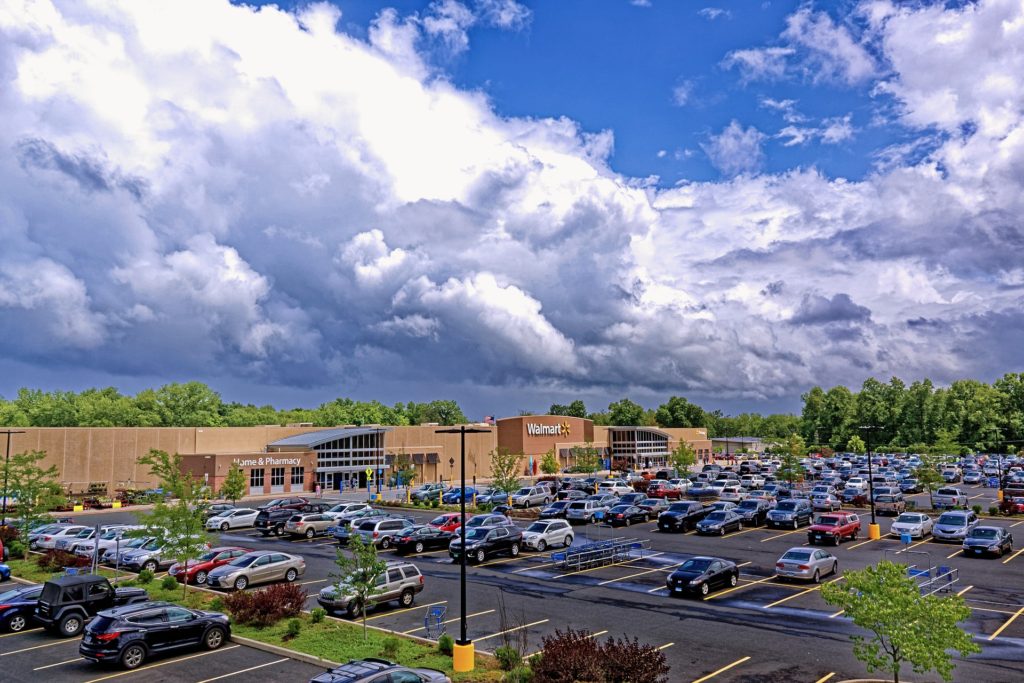
2020 has been a surprising year all around. Never did we think a mundane trip to the supermarket may instead become a highlight of our week — permitting us to finally leave the house — while simultaneously being a fearful experience due to potential exposure to COVID-19. For shoppers in Levittown, New York, however, a visit to their local Walmart Neighborhood Market has also become a futuristic experiment in retail AI.
The Long Island supermarket is in one of Walmart’s busiest and is now playing a central role in both the company’s Intelligent Retail Lab (IRL) as well as No. 8, its tech incubator. The 50,000-foot store is not only home to 30,000 products but is also equipped with AI-enabled sensors, cameras, interactive displays, and a data center. Walmart says the cabling in the store is so extensive it could scale Mt. Everest five times. The Levittown store is open to customers and although their shopping experience may not feel drastically different, that is not the case for Walmart employees working on the floor and behind the scenes.
AI is being used to help alert team members when a product needs to be restocked. Sensors on store shelves and cameras in the aisles detect when supply of an item is low, and send a message to a handheld device carried by an employee assigned to oversee that department. The result is fresh produce being consistently available to meet shoppers needs, says Mike Hanrahan, the CEO of Walmart’s IRL. “Customers can be confident about products being there, about the freshness of produce and meat,” says Hanrahan. “Those are the types of things that AI can really help with.”
This system also enables the store to better forecast upcoming sales demand, something that is particularly important during the pandemic when specific products such as toilet paper have come into unexpected higher-than-usual demand. AI can also be used to ensure sufficient shopping carts are available for consumers, and an appropriate number of registers are open to avoid long wait times and overcrowded areas in this age of vital social distancing.
Walmart notes it is deeply invested in providing tech-assisted solutions to its 160-million weekly customers, and that some of the technology that is being developed in its No. 8 incubator today may not be seen in stores for another 5 years. Other companies being incubated in No. 8 are Jet Black which enables customers to order items via text, Insperience an LA-based media company that uses VR to deepen immersive customer experiences with products, and InHome a grocery delivery company that places items inside a customer’s refrigerator.
While Walmart may be pioneering and developing big ideas with its incubator and Intelligent Retail Lab, what has not yet been publicly addressed is the privacy expectations and rights of its customers. A recent visit to the Levittown Walmart concept-store by a Forbes reporter found that no signs were present outside the supermarket disclosing the myriad of cameras that actively track a customer’s every move. Further, once customers are inside the store, they have no ability to opt-out of ‘point cloud data collection’ that creates a 3D map of “where they’re moving, how they’re moving, what their dimensions are.”
Walmart wants to be a leader in using AI to improve customer experiences, but in any technology equation the ethical treatment of individuals needs to weighed against the opportunity for increased efficiency. This is even more evident when the law has not yet caught up with the advancement in technology, and consumers are either not aware of what they are signing up for by walking into their local Walmart, or are powerless to do anything about it.
Supermarkets have become an even more vital part of our day-to-day lives during this pandemic, as feeding ourselves is a fundamental, non-negotiable necessity. As Walmart continues to develop its technology, lets hope it also considers respecting citizens privacy as they undertake the essential activity of buying food to put on their tables.
https://mashable.com/video/walmart-store-uses-ai-to-track-stock/

Best you can see in the morning !
Hey this is kinda of off topic but I was wanting to know if blogs use WYSIWYG editors or if you have to manually code with HTML. I’m starting a blog soon but have no coding know-how so I wanted to get advice from someone with experience. Any help would be enormously appreciated!
I’m very happy to read this. This is the kind of manual that needs to be given and not the accidental misinformation that is at the other blogs. Appreciate your sharing this greatest doc.